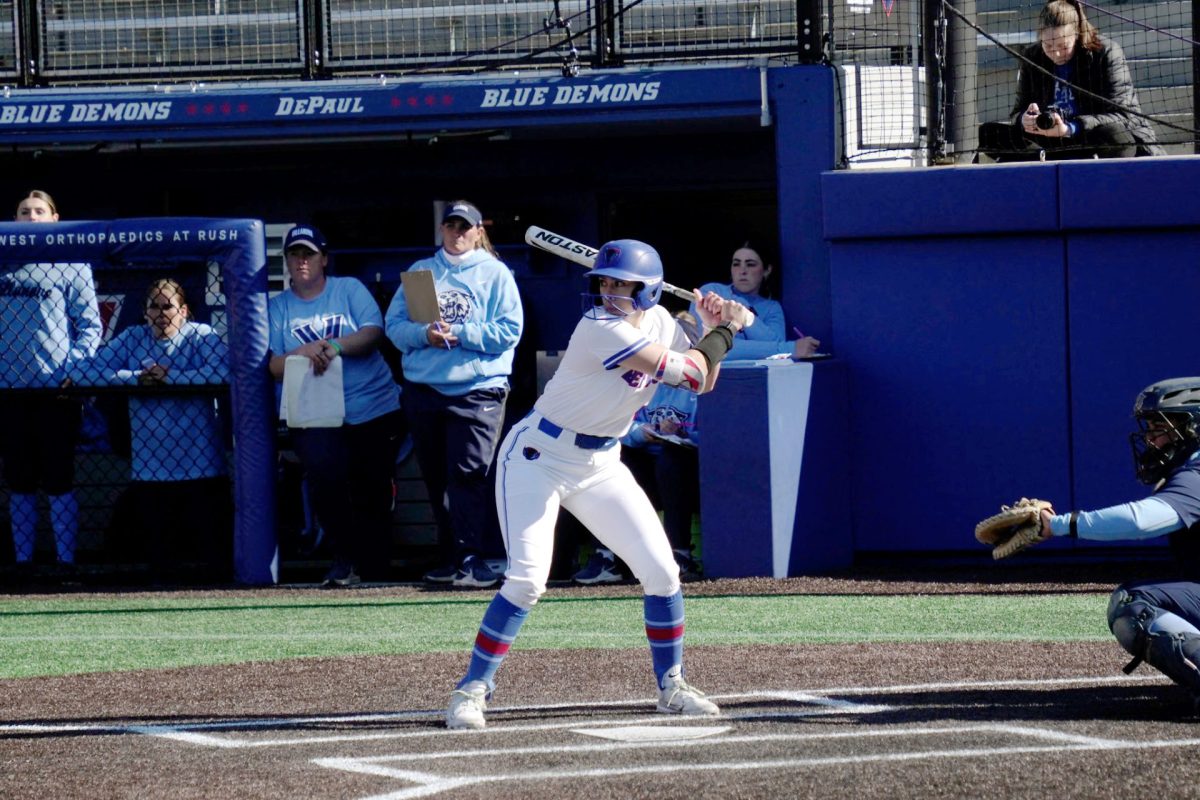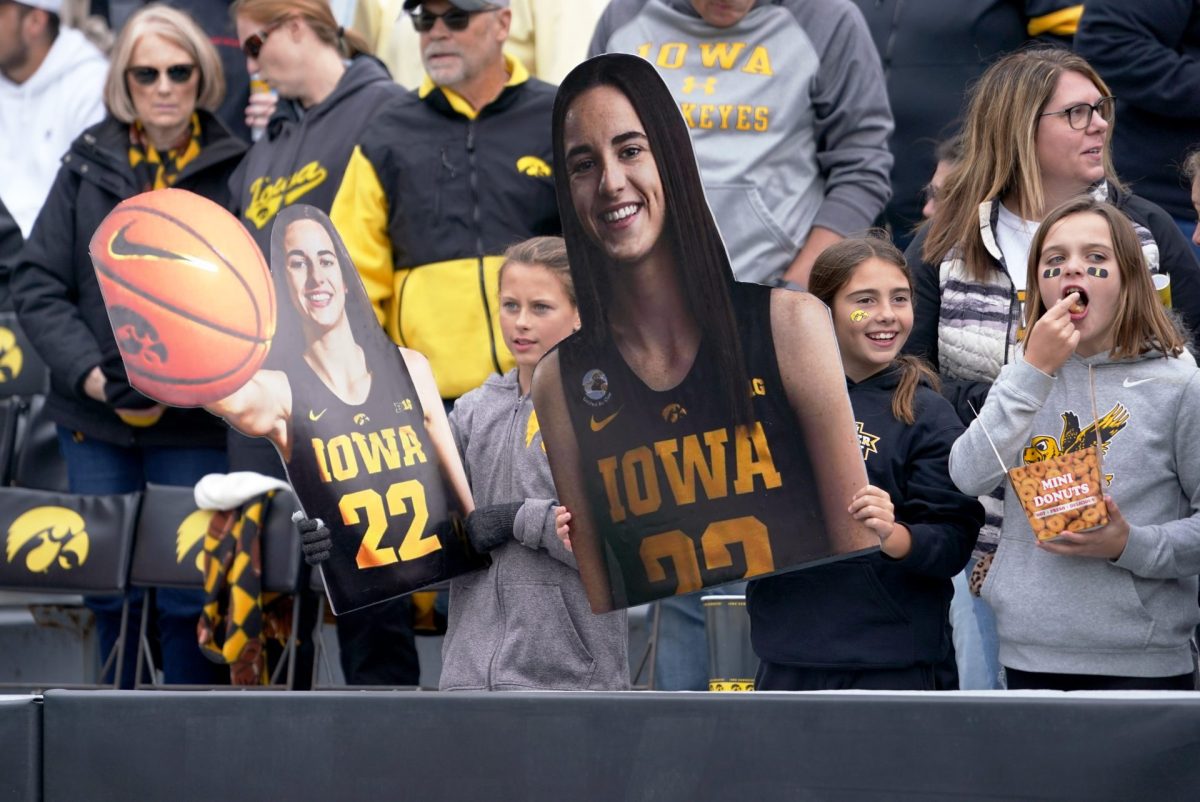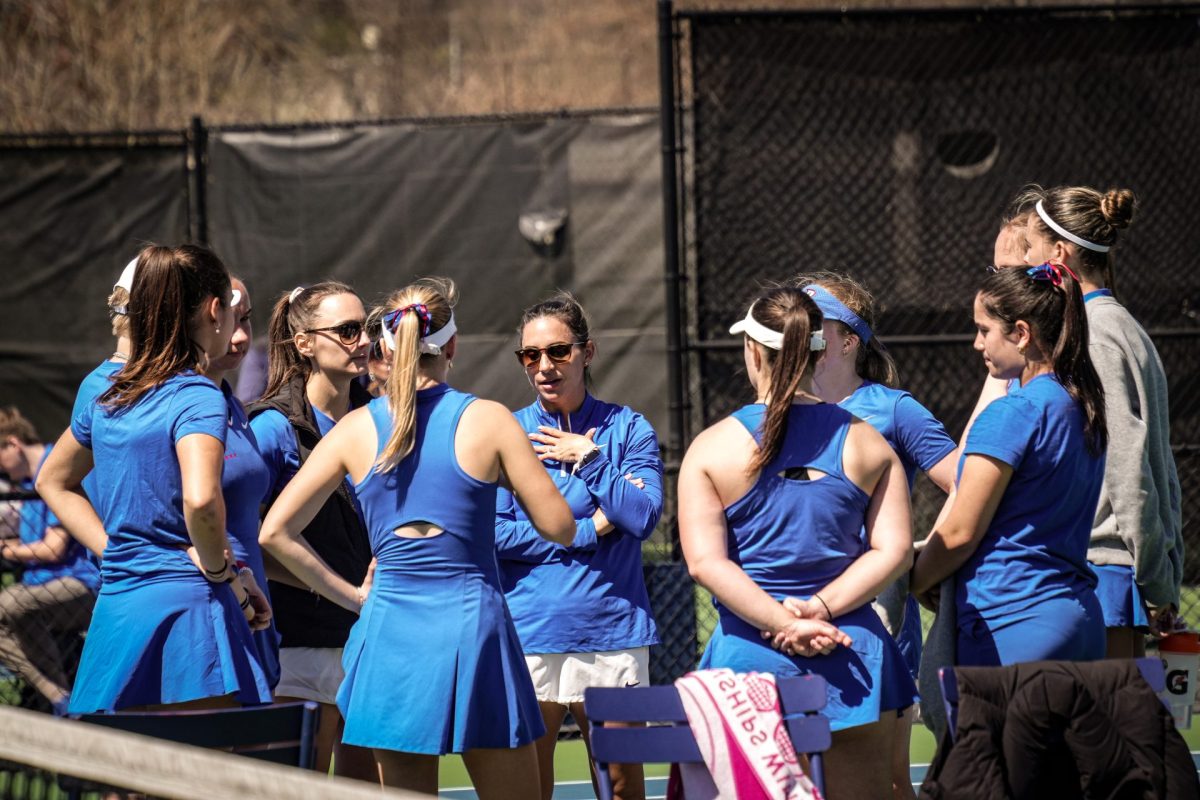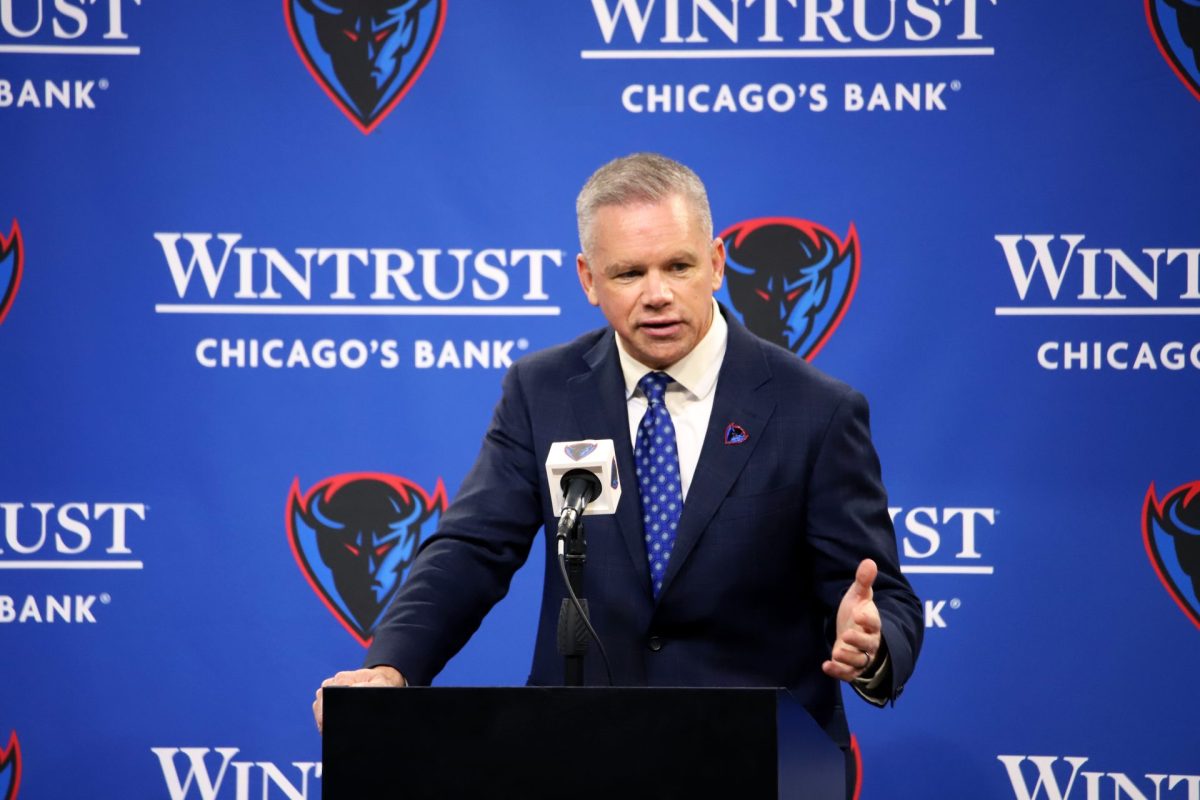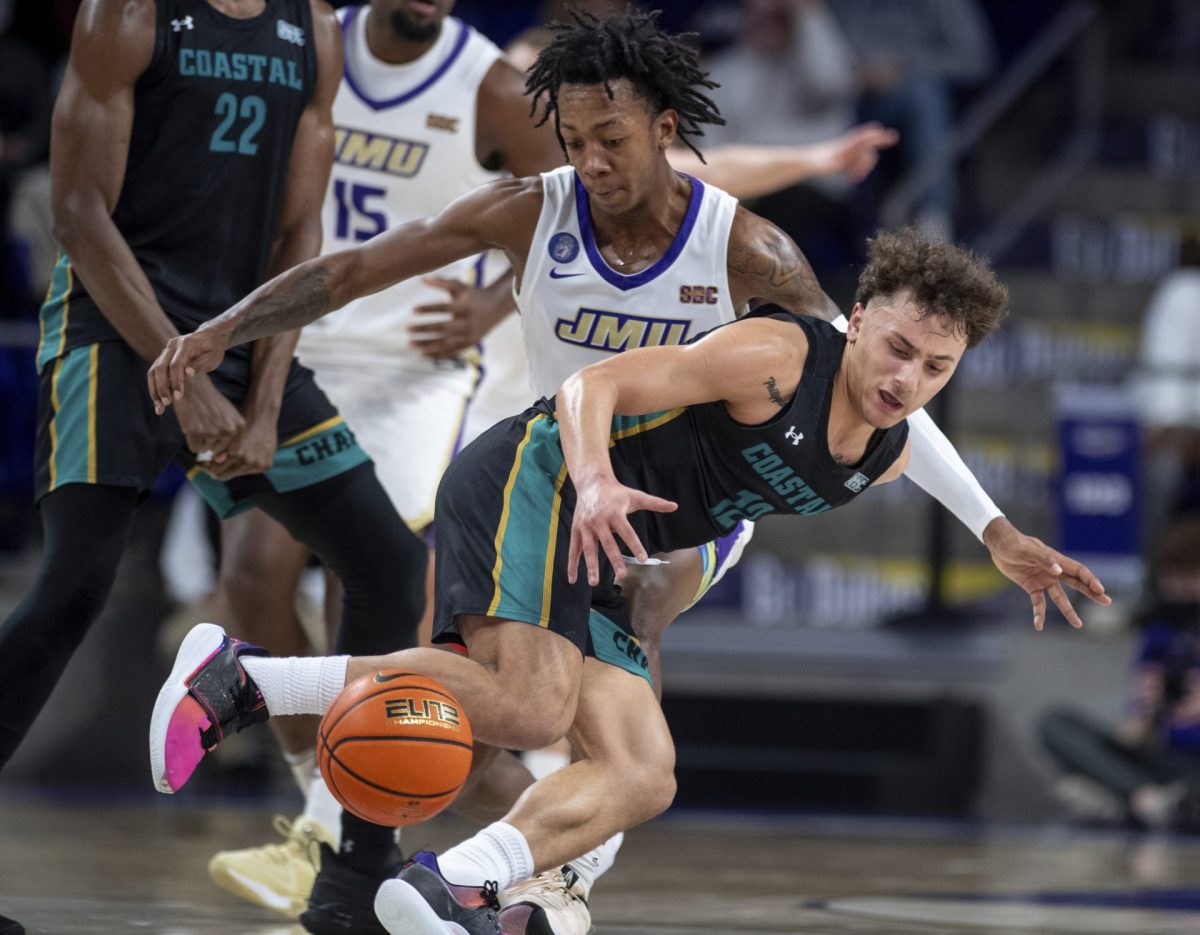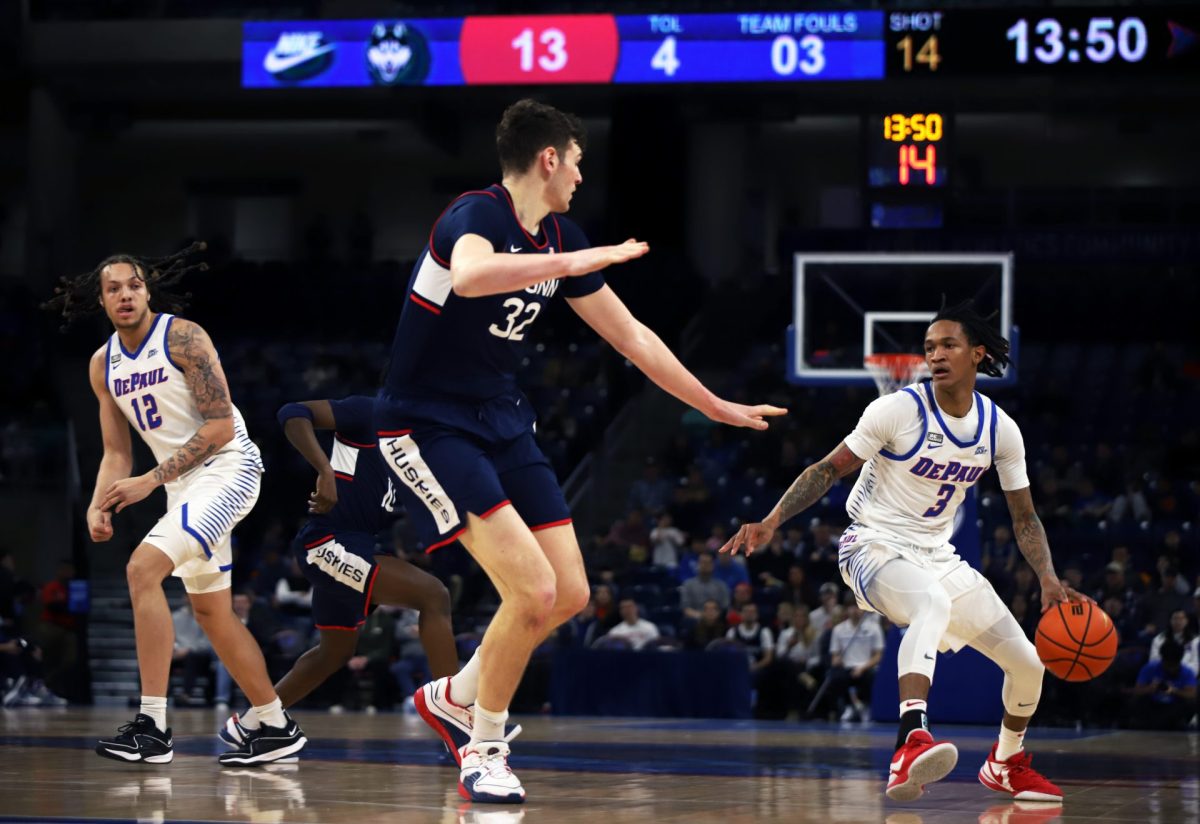ξ
Dressed in Blue Demon paraphernalia with a long lanyard attached to a whistle around his neck, Oliver Purnell, head coach of the DePaul men’s basketball program, watches a late afternoon scrimmage amongst his players. Calling orders and conducting plays, after several minutes of running up and down the court, Purnell calls a water break.
As the players jog off the court to rehydrate themselves, Purnell turns to one of his assistant coaches to discuss the next set of drills for the afternoon.
After 38 years of coaching, Purnell has been able to turn his dream of being a head basketball coach into a reality by becoming the head coach of five Division I men’s basketball teams throughout his coaching career.
In a society where things are not as racially divided as they used to be, there is still an underlying division within the world of sports among African-Americans holding higher positions on Division I athletic teams.
The Black Coaches and Administrators, whose mission is to address significant issues pertaining to the participation and employment of ethnic minorities particularly in intercollegiate athletics, released an Inaugural Hiring Report Card for 2011-2012 hiring cycle for Division I men’s basketball and football. These two reports show that there has been a steady decline in the hiring of African-American head coaches.
The Inaugural Hiring Report Card for men’s basketball by the BCA reports that 22.6 percent of the current head coaches in Division I men’s basketball are coaches of color.
Of the 124 Division 1-A college football schools, only 15 had African-American head coaches for the 2012 season.
“The percentage of black head coaches has declined steadily since 2007,” said Floyd A. Keith, BCA Executive Director. “This process is at a stalemate and we need to determine what the issue is.”
Purnell is in his third season of coaching at DePaul and the program’s second African-American head coach. Starting his coaching career in 1975 as an assistant men’s basketball coach at Old Dominion, Purnell has been named conference Coach of the Year in three different Division I conferences.
“When I first started coaching there were four or five African- American head coaches in basketball,” said Purnell. “Sports reflect our society and for a long time there was and had been discrimination against minorities. About every facet of our society is changing – sometimes it’s a lot slower then we like but it stands to reason that (if) minorities are making up a major part of the people that are participating in the sport, then there should be a similar percentage in coaching.”
Despite the thousands of African-American athletes in recent decades chosen to play for these Division I teams, a small percentage of African-Americans have been trusted with leading these teams.
Schools are known for dismissing coaches of all backgrounds when inadequate improvement does not take place. When a white coach is fired, it is not common to see him replaced by a white coach. When a black coach is fired, the evidence and data reveals it is very unlikely another coach of color will replace him.
There are several solutions that can be put into effect by the NCAA to improve equality within Division I athletics. The NFL now uses the Rooney Rule. This rule requires that all NFL teams interview at least one minority candidate for all vacant head coaching positions and other executive football operation spots.
With a rule similar to the Rooney Rule, the NCAA can allow for more minority candidates to be considered to serve in prominent positions on athletic teams.
In other facets of higher education, the use of affirmative action programs is in place to boost diversity and opportunity. Coaching mentorship programs for minority players and coaches can give those the opportunity to gain the proper access and training needed to become qualified for these positions.
Nadia Edwards is the first African-American head coach of the DePaul women’s volleyball team. Edwards serves on the minority coaching committee for the American Volleyball Coaches Association and sees the benefits of have a mentor program that allows minorities an outlet to help find coaching jobs.
“It’s an organization [AVCA] that puts together scholarships, teaches clinics, we go all around the United States and recruit to get more coaching into our sport,” said Edwards. “We had a convention that was separate within the AVCA convention to really promote African- Americans and other minorities to continue to coach and get more involved.”
The importance of African- American role models in the black community relates to the success of African-Americans socially and academically just as much as it does in the athletic arena.
“We are as good as our role models,” said Edwards. “I think when African-Americans see those who are doing well in their roles and having success, we can teach them a little bit and allow those to have a community to be able to grow in and that they know supports them.”
“I am in a prominent position and I think it gives hope to young men and women, particularly those that are in athletics, that they can be in a prominent position in our society,” said Purnell. “There are times when you get discouraged and frustrated, but I just try to use the lessons I learned from the game of basketball and my parents, that you have to continue to push and anything worth having is worth struggling for.”


